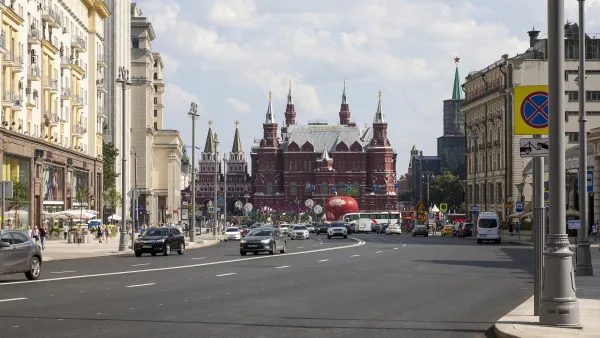The vote to approve restrictions on immigration passed narrowly with 50.3 percent of the vote. The main repercussion may be how it impacts trading with its neighbors in the EU as immigration quotas may invalidate a 1999 treaty allowing free movement.
"A narrow majority of voters in Switzerland approved proposals on Sunday (Feb. 9) that would reintroduce restrictions on the number of foreigners who are allowed to live and work in the country, a move that could have far-reaching implications for Switzerland’s relations with the European Union," writes Melissa Eddy.
In Brussels, the European Commission issued a statement saying that it was “disappointed” that the initiative had passed, adding that it would have to study the vote’s implications on relations between the European Union and Switzerland.
Neil MacLucas in the Wall Street Journal writes, "In advance of the vote, the EU warned it wouldn't renegotiate the 1999 treaty if Swiss voters approved the immigration measure, saying Switzerland couldn't pick and choose the elements of the agreement it wanted to keep."
"Switzerland, which is not part of the European Union, has one of the highest proportions of foreigners in Europe, accounting for about 27 percent of the country’s population of about eight million. Many job seekers have arrived from countries hit hard by the European economic crisis," writes Eddy, adding that "the number of foreign-born residents has risen by 14 percent over the past five years, a pace that some Swiss see as too rapid."
By comparison, 27 percent of California's have been foreign-born since 2000, as we noted in November 2011 and more recently by the Public Policy Institute of California. The state passed an anti-immigrant measure in 1994 that was voided by the courts because it violated the U.S. Constitution.
The "Stop Mass Immigration" measure was promoted by the rightist Swiss People’s Party which had collected 100,000 signatures to put it on the ballot. They said that "the curbs are needed because a rise in the number of immigrants has created too much competition for jobs, raised property prices and rents, and overtaxed the local transportation system", writes MacLucas.
In addition to potentially impacting trading with the 28 member countries that compose the EU, there is a fear that these restrictionary policies could spread throughout Europe.
Far-right parties with anti-immigrant platforms in France, the Netherlands and Norway have gained strength in recent years, and there have been sharp debates in Britain and Germany over limiting the number of immigrants from Bulgaria and Romania because citizens from those countries gained full access to European Union job markets this year.
Repeating a theme present in the U.S., the more urban regions of the country reflected a more liberal vote than other areas. "The largest cities, Zurich and Basel, rejected the vote, and smaller cities and rural areas supported it," writes Eddy.
FULL STORY: Swiss Voters Narrowly Approve Curbs on Immigration

National Parks Layoffs Will Cause Communities to Lose Billions
Thousands of essential park workers were laid off this week, just before the busy spring break season.

Retro-silient?: America’s First “Eco-burb,” The Woodlands Turns 50
A master-planned community north of Houston offers lessons on green infrastructure and resilient design, but falls short of its founder’s lofty affordability and walkability goals.

Delivering for America Plan Will Downgrade Mail Service in at Least 49.5 Percent of Zip Codes
Republican and Democrat lawmakers criticize the plan for its disproportionate negative impact on rural communities.

Test News Post 1
This is a summary

Test News Headline 46
Test for the image on the front page.

Balancing Bombs and Butterflies: How the National Guard Protects a Rare Species
The National Guard at Fort Indiantown Gap uses GIS technology and land management strategies to balance military training with conservation efforts, ensuring the survival of the rare eastern regal fritillary butterfly.
Urban Design for Planners 1: Software Tools
This six-course series explores essential urban design concepts using open source software and equips planners with the tools they need to participate fully in the urban design process.
Planning for Universal Design
Learn the tools for implementing Universal Design in planning regulations.
EMC Planning Group, Inc.
Planetizen
Planetizen
Mpact (formerly Rail~Volution)
Great Falls Development Authority, Inc.
HUDs Office of Policy Development and Research
NYU Wagner Graduate School of Public Service





























